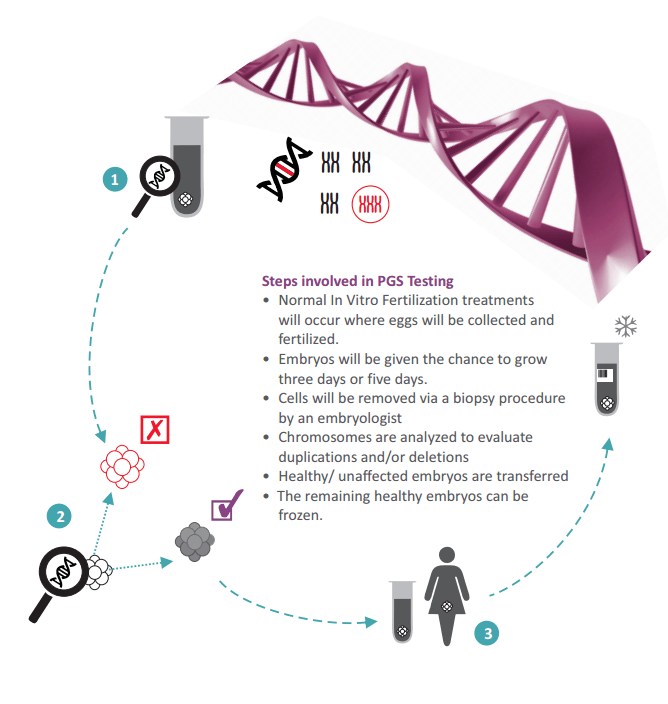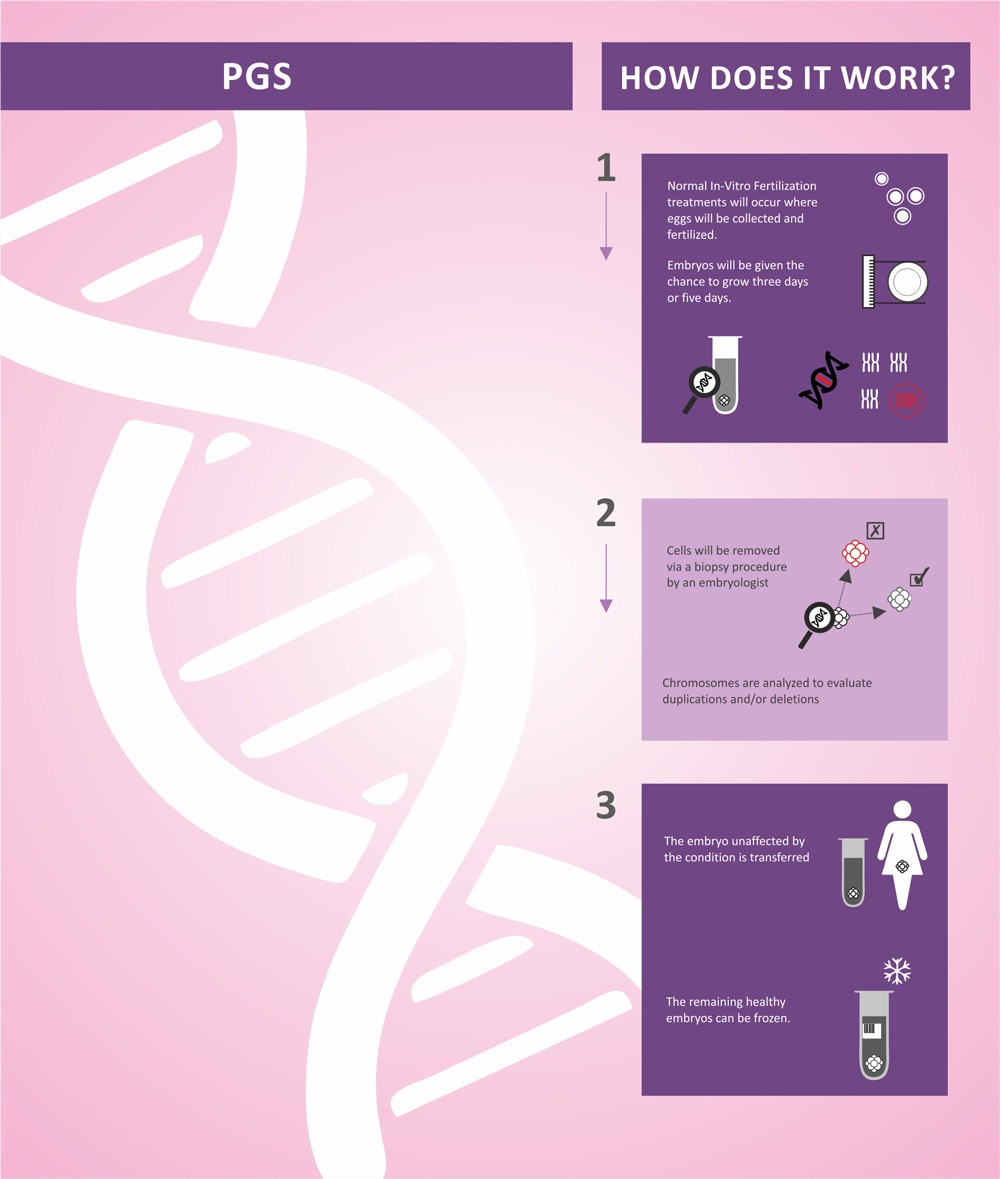
PGS – Pre Implantation Genetic Screening
Oasis is one of the very few centres in India to provide Pre-Implantation Genetic Screening (PGS). PGS is a recent development in modern medicine which is used to assess the genetic profile of the embryo before it is implanted, thereby increasing the chances of a healthy foetus.
Step-by-Step Guide – PGS Infographic

What is Pre-Implantation Genetic Screening?
Pre-Implantation Genetic Screening is used to genetically and chromosomally profile the embryo prior to implantation. This technique is used to assess if the embryo has any defects or carries any congenital diseases. This way only the best embryos will be implanted thereby reducing the probability of an unhealthy foetus.
Earlier only 5 chromosomes of the total 23 chromosomes could be analyzed. But, with PGS all 23 chromosomes can be analyzed which gives more clarity into the profile of the embryo.
So, using this technique only the best and unaffected embryos are transferred into the woman’s uterus. This is a great alternative to the currently practiced post conception diagnostic procedures which could lead to a selective pregnancy termination if there is something wrong with the foetus.
PGS is presently the only option available to avoid the high risk of a child affected with a genetic disease before conception. It is an appealing way to of preventing a heritable genetic disease.
At what stage of treatment can this be done?
PGS is one of the steps of an in vitro fertilization cycle. After the egg collection happens, the sperm and the eggs are fused together to form an embryo. The Pre-Implantation Genetic Screening is applied at this stage, where the genetic make-up of the embryo is analysed.
The best embryo is implanted into the woman’s uterus by an Embryo Transfer procedure.
How do we know if we need PGS?
Usually Pre-Implantation Genetic Screening is employed in the following cases.
- Multiple In Vitro Fertilization failures
- Recurrent miscarriages
- If either of both partners suffer from congenital diseases such as Thalassemia or colour blindness
However, based on individual cases, the doctor takes a call on whether this technique is required for the couple.
UNIQUE FEATURES OF PGS AT OASIS
- All the 23 pairs of chromosomes are screened, unlike the traditional FISH technique where only 5 chromosomes are screened
- The genetic screening is done by Array CGH, an advanced micro-array technique
- We get the reports in less than 36hrs, which helps in a fresh blastocyst transfer
- We are equipped to perform both Blastomere and Trophectoderm biopsy based on the stage of the screening
- We follow international standards and imported a LASER from Germany for the Embryo Biopsy technique and a Micro-Manipulator from Japan for embryo biopsy
- Our IVF lab is equipped with a high-end Air Handling Unit, which enables us to maintain a class 10,000 environment and positive airflow pressure.





